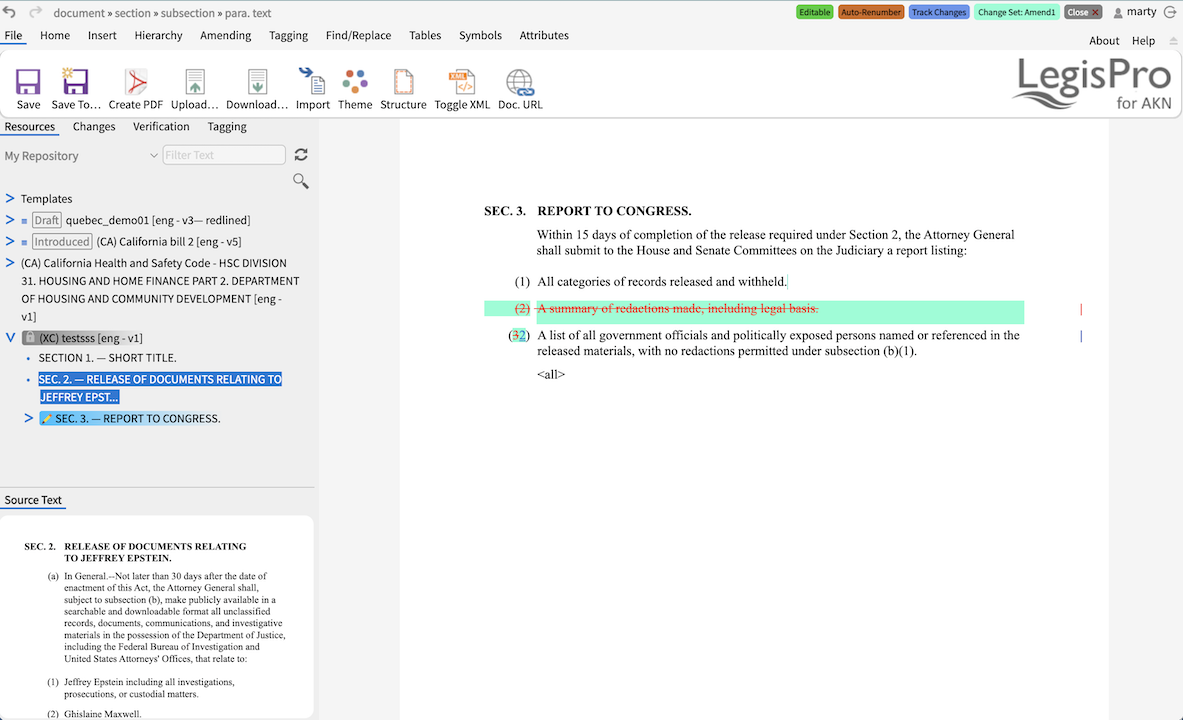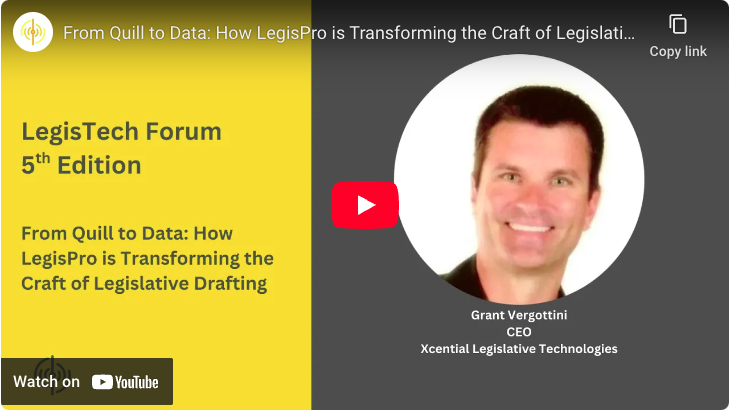AI in Parliaments: Bussola Event in Washington DC
May 21, 2025


Bussola Tech hosted an intriguing conference on May 8 and 9 at the U.S. Congress and Organization of American States (OAS).
The topic was artificial intelligence in parliaments. Participants and attendees include a roster of thought-leaders from South Korea, the U.S. Congress, Peru, Mexico, Chile, Brasil, Spain, Argentina, and Greece.
This blog post is not providing arguments for a perspective or truth, but instead a few interesting themes and discussions that had gravity at the conference.
Europe is Going AI Independent
Dr. Fotis Fitsilis contributed an article called “AI Applications, Concepts, and Considerations for Parliaments” to the Bussola Tech publication “Artificial Intelligence in Legislative Services: Principles for Effective Implementation”.
Dr. Fitsilis explained to the conference that the EU is establishing AI factories across member countries. Greece will be the first, but another 14 countries will open AI factories in 2025-2026.
The goal is to create AI independence for the EU. Independence from corporate-controlled and profit-driven companies like OpenAI and Google. The EU generally believes in the power of AI, but understands the supply-chain and ethical concerns of allowing AI to be controlled by corporations.
AI factories across Europe that are connected and working together, could create a powerful model and associated use-case implementations to benefit all EU governments and citizens, like in the EU Parliament's project called the Archibot.
The concern around reliance on OpenAI and Google (maybe a couple others) is legitimate. OpenAI was founded by Sam Altman, Elon Musk, Trevor Blackwell, and several others as a “non-profit”. Trevor Blackwell was the founder of Y Combinator, putting him at the intersection of investment and startups. Sam Altman was the president of Y Combinator and an investor. Elon Musk is the richest man in the world. To believe that a combination of investors and individuals who profit from startup investment would be dedicated to non-profit is naive.
Value capture and profit is and will be the primary driver of actions by both OpenAI and Google.
While that motivation is expected, it does not always support the mission of governments.
The efforts led by Dr. Fitsilis are good governance. At the conference, Xcential expressed a hope that non-EU nations would learn from these efforts and negotiate to participate with the EU.
The Americas are Open and Practical
Peru, Argentina, Brasil, and Mexico discussed case-studies. Each has taken real action to introduce AI applications in various parts of their respective governments.
From RaG (RAG uses search algorithms to query external data sources like databases, knowledge bases, or even the web) to regulatory applications, countries have put AI to work.

Panel discussion about using AI for legal and procedural assistants. Left to right: Miguel Landeros - Secretary-General at the Cámara de Diputadas y Diputados of Chile, Danilo Aguiar - Secretary-General at the Senado Federal of Brazil, Luís Kimaid - Executive-Director at the Bússola Tech, Kirsten Gullickson - Director of Systems Analysis and Quality Assurance at Office of the Clerk of the U.S. House of Representatives, and Marty Bickford of Xcential.
What we learned about these countries is their willingness to be practical and learn from experience. While many governments wrestle with theories over when AI can be good or bad, Latin America is first tackling efficiency and leaving supply chain and transparency concerns to be dealt with after gathering experience.
This puts many of these countries in a position of influence over corporations and may allow them to positively affect the future of corporate AI.
One such example is the CAMINAR project. It is a digital suite developed by the Chamber of Deputies of Chile that uses artificial intelligence to modernise legislative and administrative workflows. It includes CAMINAR-L, which supports legislative process, and CAMINAR-A, which automates administrative tasks such as document validation.
Another such example is the Comparative Print Suite, a digital tool developed by the U.S. House of Representatives in collaboration with Xcential Legislative Technologies. It enables staff to compare different versions of bills and amendments, highlighting changes and their impacts on existing laws.
The Federal Senate of Brazil is advancing a comprehensive AI strategy to modernize its legislative process. To achieve this, a multi-layered embedding-based retrieval method has been developed to semantically index legal texts at various levels of granularity, enabling more precise and context-aware information retrieval, enabling the creation of a number of legislative assistants.
There are too many case-studies to enumerate, but refer to the book by Bussola to see the details. Using AI to strengthen citizen representation and therefore democracy was a major theme.
This was a truly global event including South America, Central America, North America, Europe, and Asia.
Korea says Protect Humanism
Kyoungshin Kim of South Korea gave an intriguing talk. Currently Ms. Kim serves as the Inter-Parliamentary Officer for the National Assembly of Korea and the Senior Legal Consultant for the World Bank where she provides expert advice to governments on AI and leads projects for the World Bank. She also served as Legal Counsel for the National Assembly of the Republic of Korea.
Her message was to be cautious and continue to experiment. Treat AI as a powerful tool, but it is just a tool and will always be just a tool. We need to carefully consider the implications of AI on our human citizens and the planet.
AI will provide great benefit, but we must consider there will be disruption to workers who support real families. Therefore we must always place the human before the object; considering efficiency as secondary as not in the same category as human concerns.
AI Drafting Legislation and Structured Information
There was general consensus that AI is not yet appropriate for drafting legislation. However, AI can be used to gather research and as a “co-pilot” to help drafters (much like AI helps software engineers).
There are several reasons why AI is not yet appropriate for drafting legislation. One, inconsistency in generative text can lead to unintended consequences which violates one of the prime principles in drafting. This may be addressed in the near term, but exists today. Two, legislation is often about the future, not a reflection of the past and AI’s basis of knowledge is the past. Legislative drafting is not a creative exercise but a technical discipline to document intent of the legislators. Three, today’s AI can generate words that mimic human writing, but AI’s calculations are based on probability of word order and not based on truth or experiential knowledge. So AI might get the draft correct (even without understanding the truth it convenes), but the lack of value creation by AI in drafting legislation and regulation is not yet worth the potential downsides.
One thing that was discussed was the investment in structured information. While all legislatures take great care in their stewardship of the law, not all have adopted information structures. These structures like LegalDocML create XML versions of the law, bills, amendments, etc to make the law machine readable and interoperable.
AI generally performs better when it is trained on structured information. This is because the structure is part of the meaning and interpretation. Therefore any AI services that are related to law should be trained on law that is structured in XML according to a standard. Better inputs means better outputs. Several speakers at the conference made this important point.

Panel discussion about what it means for parliaments to incorporate new technologies. Left to right: Grant Vergottini - CEO of Xcential, Eric Aedo - Vice-President of the Cámara de Diputadas y Diputados of Chile, Luís Kimaid – Executive Director of Bússola Tech, and Federico Döring Casar - Member of the Cámara de Diputados of Mexico.
Summary
The Bussola conference was a valuable event. Secretary-Generals from Brasil and Chile attended. Spain sent a very high-level delegation which was significant given their heavy investment and experience with real implementation. Elected representatives from Mexico, Peru, and the United States were in attendance.
Bússola Tech is a global Think Tank that works in the promotion of the institutional modernisation and digital transformation in the Parliaments and Legislatures, through parliamentary diplomacy, cooperation and research.
The Organization of American States is the world’s oldest regional organization, dating back to the First International Conference of American States, held in Washington, D.C., from October 1889 to April 1890. That meeting approved the establishment of the International Union of American Republics, and the stage was set for the weaving of a web of provisions and institutions that came to be known as the inter-American system, the oldest international institutional system.
Sharing experiences, concerns and future plans between countries is meaningful in a situation where AI is becoming used by citizens and all governments are expected to have a perspective.
AI is being used in many governments today.
Xcential encourages all governments to participate with Bussola and find partners. We also encourage you to invest in structured information relative to legislation and regulation.
Author: Marty Bickford








